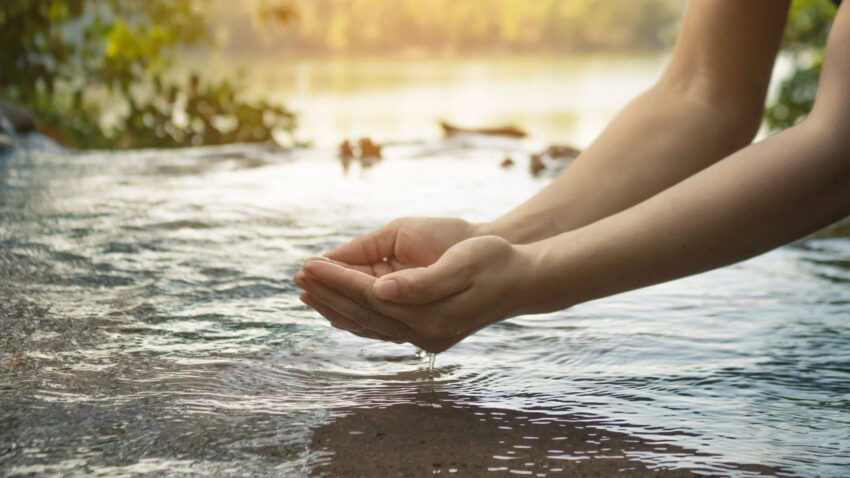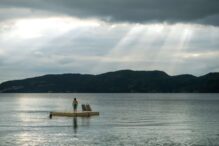Do you ever stop and think about how much water you use every day? From the moment you wake up until the moment you go to bed, water is an essential part of your daily routine. But have you ever considered the impact that excessive water use can have on the environment? In this article, we’ll take a closer look at how water conservation can positively affect our planet. The article is presented by CreativeHomeDesignIdeas
What is Water Conservation?

Water conservation is the practice of using water in a more efficient and responsible way to minimize waste and preserve our precious natural resources. This can include everything from turning off the tap while brushing your teeth to installing water-efficient appliances in your home.
Why is Water Conservation Important?
Water is one of our most valuable resources, and yet it’s something we often take for granted. With over 70% of the Earth’s surface covered in water, it’s easy to assume that we’ll always have an abundant supply. However, the truth is that less than 1% of the world’s water is readily accessible for human use. This means that we need to be mindful of our water consumption if we want to ensure that future generations have access to this vital resource. Discover How Can We Conserve Water
The Environmental Impact of Water Use
Excessive water use doesn’t just impact our water supply; it can also have a significant impact on the environment. Here are just a few of the ways that water use affects our planet:
Depletion of Aquifers
Aquifers are underground layers of rock that store and transmit water. They’re an important source of water for many communities, but excessive water use can deplete these valuable resources. When an aquifer is depleted, it can lead to sinking land, reduced water quality, and even the collapse of buildings and infrastructure.
Soil Erosion
When water is used excessively, it can lead to soil erosion. This occurs when the top layer of soil is washed away, leaving behind bare ground that is more susceptible to erosion. This can cause a number of problems, including the loss of fertile soil and the destruction of wildlife habitats.
Energy Use
Water use is closely linked to energy use. The more water we use, the more energy is required to pump, treat, and transport that water. This can lead to increased greenhouse gas emissions and contribute to climate change.
The Benefits of Water Conservation
By conserving water, we can help reduce the impact that excessive water use has on the environment. Here are just a few of the benefits of water conservation:
Reduced Energy Use
By using water more efficiently, we can reduce the amount of energy required to pump, treat, and transport water. This can help reduce greenhouse gas emissions and combat climate change.
Improved Water Quality
By using less water, we can help reduce the amount of pollutants and contaminants that end up in our water supply. This can help improve water quality and protect aquatic habitats.
Preservation of Aquifers
By conserving water, we can help ensure that our aquifers are not depleted. This can help prevent sinking land, maintain water quality, and protect infrastructure.
Financial Savings
Conserving water can also lead to financial savings. By using water more efficiently, we can reduce our water bills and save money on energy costs.
How Can You Conserve Water?
There are a number of simple steps that you can take to conserve water in your daily life. Here are just a few ideas to get you started:
Fix Leaks
Leaky faucets and toilets can waste a surprising amount of water over time. By fixing leaks, you can help reduce your water consumption and save money on your water bill.
Install Water-Efficient Appliances
Water-efficient appliances, such as low-flow showerheads and toilets, can help reduce your water consumption and save money on your water bill. When purchasing new appliances, look for models that are labeled as water-efficient.
Take Shorter Showers
Taking shorter showers is a simple way to conserve water. Try to keep your showers under five minutes to reduce your water consumption.
Water Your Lawn Wisely
If you have a lawn, try to water it in the early morning or late evening when temperatures are cooler. This will help reduce evaporation and ensure that the water is absorbed by the grass.
Reuse Water
Consider reusing water when possible. For example, you can collect rainwater in a barrel and use it to water your plants or garden.
Conclusion
Water conservation is a simple yet effective way to reduce the impact that excessive water use has on our planet. By using water more efficiently, we can help preserve our natural resources, protect the environment, and save money on our water bills. So, the next time you turn on the tap, remember that every drop counts!

